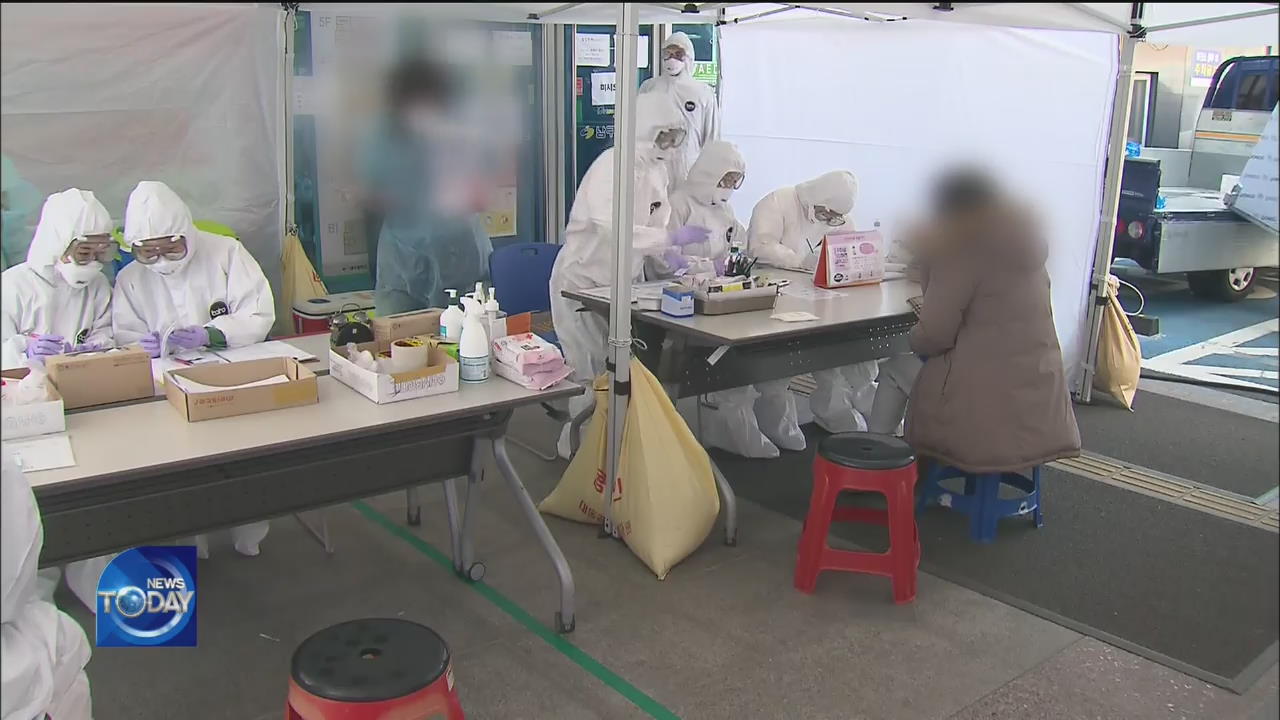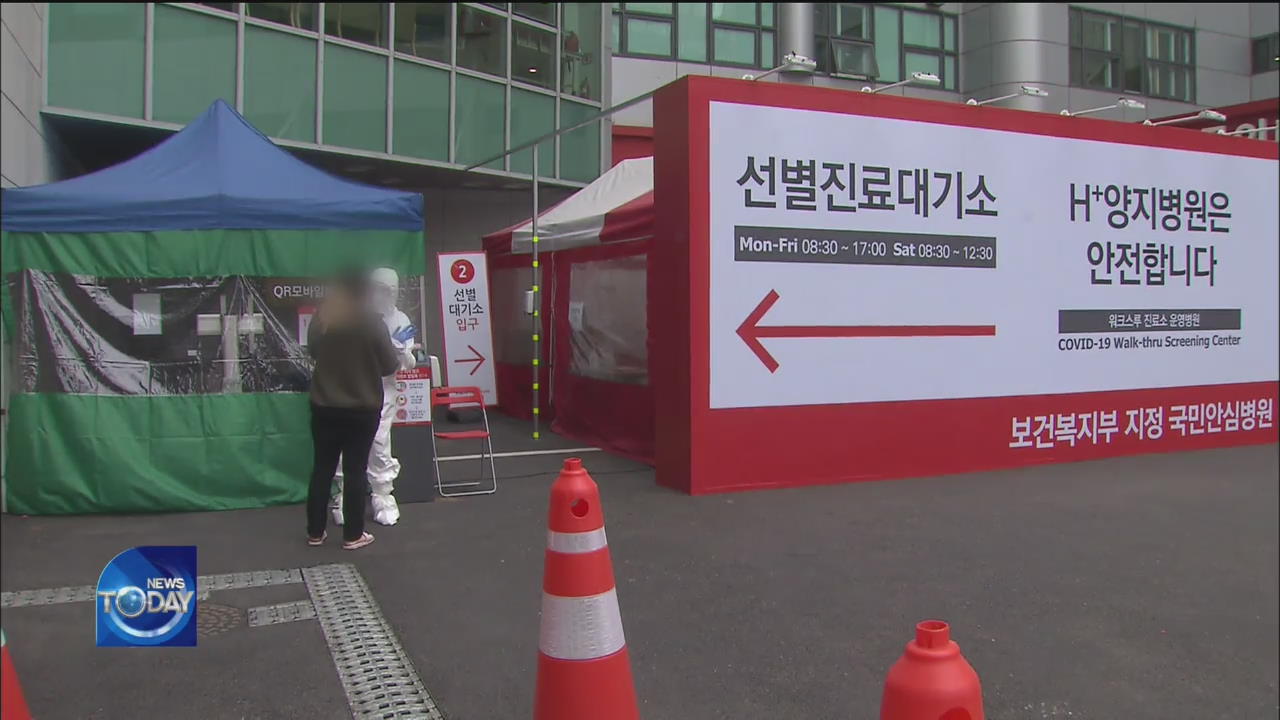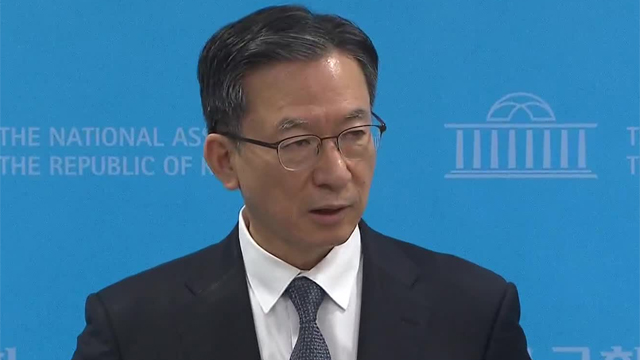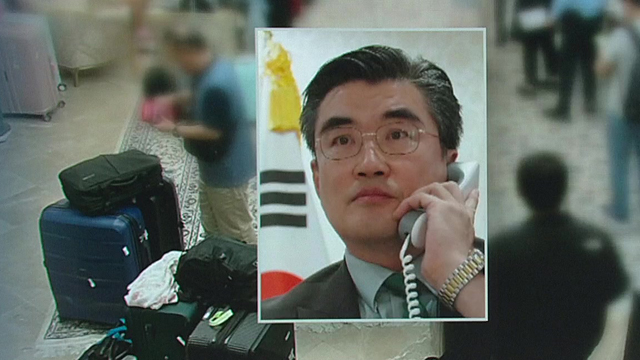CONCERNS OVER RE-DIAGNOSED COVID-19 PATIENTS
입력 2020.05.19 (15:02)
수정 2020.05.19 (16:45)
읽어주기 기능은 크롬기반의
브라우저에서만 사용하실 수 있습니다.
[Anchor Lead]
Cases of patients re-diagnosed with COVID-19 after they recovered from the virus are on the surge, raising concerns that they might transmit the virus again. But quarantine authorities officially confirmed there is no ground to believe that such patients can be a source of secondary transmission.
[Pkg]
A Gyeongsangnam-do Province resident in her 20s tested positive for COVID-19 three times. The first time was back in February. After recovering twice, she was again confirmed to be infected. At a nursing home in Gyeongsangbuk-do Province, 47 infected people were discharged from quarantine after testing negative for the virus. However, nearly half of them were re-diagnosed with the disease. Across the nation, there have been 473 cases of patients being re-diagnosed with COVID-19. Quarantine authorities came forward to dismiss speculations that such patients could be a source of secondary transmission. According to the officials, epidemiological studies and tests showed no evidence that re-diagnosed patients transmit the virus again. In a virus cultivation test, all 108 re-diagnosed patients tested negative. Meaning no infectious live virus was found in the re-diagnosed patients.
[Soundbite] PROF. LEE JAE-KAP(HALLYM UNIV. MEDICAL CENTER) : "Re-diagnosis cases indicate flaws with the current PCR coronavirus test. The test is sensitive and can detect dead viruses."
Authorities also said there were no reports of infections caused by contact with re-diagnosed patients. Among 790 people coming into contact with 285 re-diagnosed patients, only three were confirmed to be new cases. Quarantine experts believe these new patients contracted the virus through a different source.
[Soundbite] JEONG EUN-KYEONG(KCDC CHIEF) : "We presume they were infected through a separate source but remained unidentified until we found them while tracking down those coming into contact with patients earlier."
As a result, all COVID-19 patients can return to their daily lives right away, without an additional two-week voluntary self-isolation period, once they are discharged from quarantine after being declared to have recovered from the disease. Still, authorities will continue to compile data regarding re-diagnosis cases and trace anyone who come into contact with them.
Cases of patients re-diagnosed with COVID-19 after they recovered from the virus are on the surge, raising concerns that they might transmit the virus again. But quarantine authorities officially confirmed there is no ground to believe that such patients can be a source of secondary transmission.
[Pkg]
A Gyeongsangnam-do Province resident in her 20s tested positive for COVID-19 three times. The first time was back in February. After recovering twice, she was again confirmed to be infected. At a nursing home in Gyeongsangbuk-do Province, 47 infected people were discharged from quarantine after testing negative for the virus. However, nearly half of them were re-diagnosed with the disease. Across the nation, there have been 473 cases of patients being re-diagnosed with COVID-19. Quarantine authorities came forward to dismiss speculations that such patients could be a source of secondary transmission. According to the officials, epidemiological studies and tests showed no evidence that re-diagnosed patients transmit the virus again. In a virus cultivation test, all 108 re-diagnosed patients tested negative. Meaning no infectious live virus was found in the re-diagnosed patients.
[Soundbite] PROF. LEE JAE-KAP(HALLYM UNIV. MEDICAL CENTER) : "Re-diagnosis cases indicate flaws with the current PCR coronavirus test. The test is sensitive and can detect dead viruses."
Authorities also said there were no reports of infections caused by contact with re-diagnosed patients. Among 790 people coming into contact with 285 re-diagnosed patients, only three were confirmed to be new cases. Quarantine experts believe these new patients contracted the virus through a different source.
[Soundbite] JEONG EUN-KYEONG(KCDC CHIEF) : "We presume they were infected through a separate source but remained unidentified until we found them while tracking down those coming into contact with patients earlier."
As a result, all COVID-19 patients can return to their daily lives right away, without an additional two-week voluntary self-isolation period, once they are discharged from quarantine after being declared to have recovered from the disease. Still, authorities will continue to compile data regarding re-diagnosis cases and trace anyone who come into contact with them.
■ 제보하기
▷ 카카오톡 : 'KBS제보' 검색, 채널 추가
▷ 전화 : 02-781-1234, 4444
▷ 이메일 : kbs1234@kbs.co.kr
▷ 유튜브, 네이버, 카카오에서도 KBS뉴스를 구독해주세요!
- CONCERNS OVER RE-DIAGNOSED COVID-19 PATIENTS
-
- 입력 2020-05-19 15:02:53
- 수정2020-05-19 16:45:21

[Anchor Lead]
Cases of patients re-diagnosed with COVID-19 after they recovered from the virus are on the surge, raising concerns that they might transmit the virus again. But quarantine authorities officially confirmed there is no ground to believe that such patients can be a source of secondary transmission.
[Pkg]
A Gyeongsangnam-do Province resident in her 20s tested positive for COVID-19 three times. The first time was back in February. After recovering twice, she was again confirmed to be infected. At a nursing home in Gyeongsangbuk-do Province, 47 infected people were discharged from quarantine after testing negative for the virus. However, nearly half of them were re-diagnosed with the disease. Across the nation, there have been 473 cases of patients being re-diagnosed with COVID-19. Quarantine authorities came forward to dismiss speculations that such patients could be a source of secondary transmission. According to the officials, epidemiological studies and tests showed no evidence that re-diagnosed patients transmit the virus again. In a virus cultivation test, all 108 re-diagnosed patients tested negative. Meaning no infectious live virus was found in the re-diagnosed patients.
[Soundbite] PROF. LEE JAE-KAP(HALLYM UNIV. MEDICAL CENTER) : "Re-diagnosis cases indicate flaws with the current PCR coronavirus test. The test is sensitive and can detect dead viruses."
Authorities also said there were no reports of infections caused by contact with re-diagnosed patients. Among 790 people coming into contact with 285 re-diagnosed patients, only three were confirmed to be new cases. Quarantine experts believe these new patients contracted the virus through a different source.
[Soundbite] JEONG EUN-KYEONG(KCDC CHIEF) : "We presume they were infected through a separate source but remained unidentified until we found them while tracking down those coming into contact with patients earlier."
As a result, all COVID-19 patients can return to their daily lives right away, without an additional two-week voluntary self-isolation period, once they are discharged from quarantine after being declared to have recovered from the disease. Still, authorities will continue to compile data regarding re-diagnosis cases and trace anyone who come into contact with them.
Cases of patients re-diagnosed with COVID-19 after they recovered from the virus are on the surge, raising concerns that they might transmit the virus again. But quarantine authorities officially confirmed there is no ground to believe that such patients can be a source of secondary transmission.
[Pkg]
A Gyeongsangnam-do Province resident in her 20s tested positive for COVID-19 three times. The first time was back in February. After recovering twice, she was again confirmed to be infected. At a nursing home in Gyeongsangbuk-do Province, 47 infected people were discharged from quarantine after testing negative for the virus. However, nearly half of them were re-diagnosed with the disease. Across the nation, there have been 473 cases of patients being re-diagnosed with COVID-19. Quarantine authorities came forward to dismiss speculations that such patients could be a source of secondary transmission. According to the officials, epidemiological studies and tests showed no evidence that re-diagnosed patients transmit the virus again. In a virus cultivation test, all 108 re-diagnosed patients tested negative. Meaning no infectious live virus was found in the re-diagnosed patients.
[Soundbite] PROF. LEE JAE-KAP(HALLYM UNIV. MEDICAL CENTER) : "Re-diagnosis cases indicate flaws with the current PCR coronavirus test. The test is sensitive and can detect dead viruses."
Authorities also said there were no reports of infections caused by contact with re-diagnosed patients. Among 790 people coming into contact with 285 re-diagnosed patients, only three were confirmed to be new cases. Quarantine experts believe these new patients contracted the virus through a different source.
[Soundbite] JEONG EUN-KYEONG(KCDC CHIEF) : "We presume they were infected through a separate source but remained unidentified until we found them while tracking down those coming into contact with patients earlier."
As a result, all COVID-19 patients can return to their daily lives right away, without an additional two-week voluntary self-isolation period, once they are discharged from quarantine after being declared to have recovered from the disease. Still, authorities will continue to compile data regarding re-diagnosis cases and trace anyone who come into contact with them.
이 기사가 좋으셨다면
-
좋아요
0
-
응원해요
0
-
후속 원해요
0










![[HEADLINE]](https://news.kbs.co.kr/data/news/2020/05/19/4449634_10.jpg)






이 기사에 대한 의견을 남겨주세요.